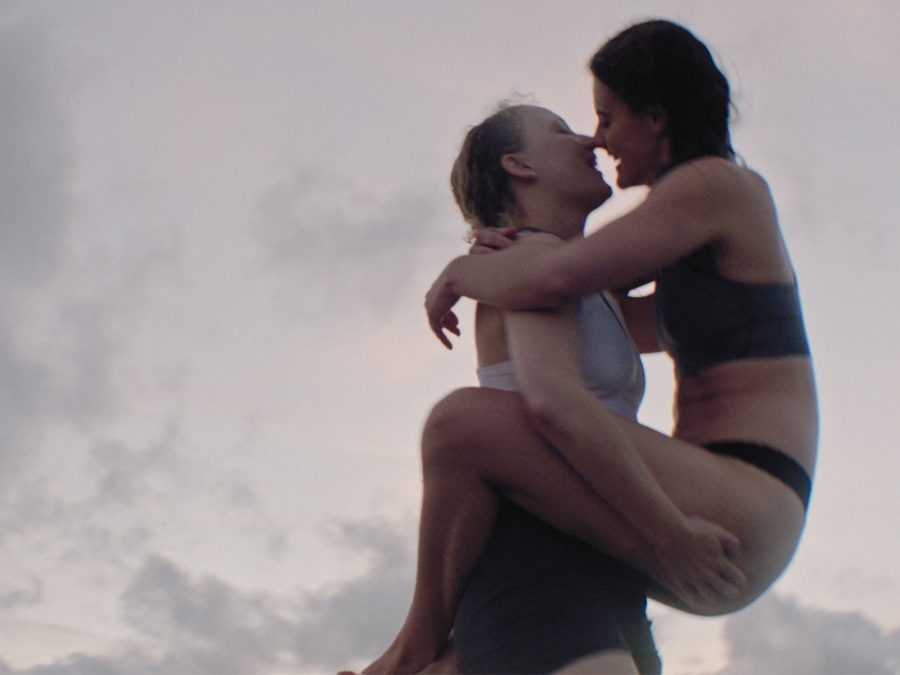Lying eyes closed and neck-deep in the bathtub, Justine (Tallulah Haddon) is utterly numb to the world. The echo of her landlord hammering against her door for rent is just one of the many things she is trying to block out. Jamie Patterson’s touching drama looks inwards, intimately following Justine’s battles with alcoholism, dwindling hope and self-destructive tendencies.
The film opens with a quote from ‘Heroides’, a collection of poems on the aggrieved suffering of mythological heroines, foreshadowing the conflict to come. It is the aforementioned book that Justine slips under her coat during her bookshop meet-cute with the ambitious Rachel (Sophie Reid). An accomplice in the theft, Rachel is lured in by the daring glint in Justine’s eyes and the pair quickly become attached at the hip. Though trouble arises when this serene lesbian set-up is compromised and Justine is consumed by the threat of loneliness, regressing to a search for hope at the bottom of an unmarked bottle of vodka.
Patterson has established himself as a distinctive voice in British queer cinema over the past few years, consistently treating queerness as a multifaceted experience. Following on from 2018’s Tucked, in which a veteran drag queen shows a newcomer the ways of the world, Justine finds Patterson ruminating on the healing power of queer love.

Hope is a theme that often resonates through queer film, be it the hope for acceptance, freedom or love. But initially it is non-existent in Justine’s case. Patterson’s camera lingers on her from a distance, emphasising how her craving for intimacy has become reliant on Rachel’s proximity. Disconnected in the absence of her lover, it is only with the arrival of Rachel that Justine finds a reason to be hopeful.
The film is structured around the fluctuating patterns of Justine’s volatile addiction, the ebb and flow of emotional intensity grounded by Haddon’s fierce performance. Both Rachel, with her kindhearted support, and Peach (Xavien Russell), Justine’s only real friend, stand on the periphery as Patterson focuses on Justine’s struggle with withdrawal and relapse.
Justine is at its best when Haddon and Reid’s relationship comes to the fore, though these glimmers of poet romance are occasionally trapped by abrupt tonal shifts. One such moment occurs in Justine’s therapists’ (Sian Reese-Williams) office, where the dialogue borders on cliché. However, the film’s diligence in rejecting queer abandonment allows for a sincere portrayal of lesbian love where obstacles are presented in isolation from sexuality, an exemption that feels particularly poignant.
Justine is available from March 5th on Curzon Home Cinema.
ANTICIPATION.
Patterson’s follow-up to his indie gem, Tucked. 3
ENJOYMENT.
Suspect writing choices aside, this is an absorbing tale of addiction and restorative lesbian love. 3
IN RETROSPECT.
Patterson is proving himself a distinctive voice in British queer cinema. 4
Directed by
Jamie Patterson
Starring
Tallulah Haddon, Sophie Reid, Steve Oram
The post Justine appeared first on Little White Lies.
![Forest Essentials [CPV] WW](https://s3-us-west-2.amazonaws.com/pcw-uploads/logos/forest-essentials-promo-codes-coupons.png)
0 comments